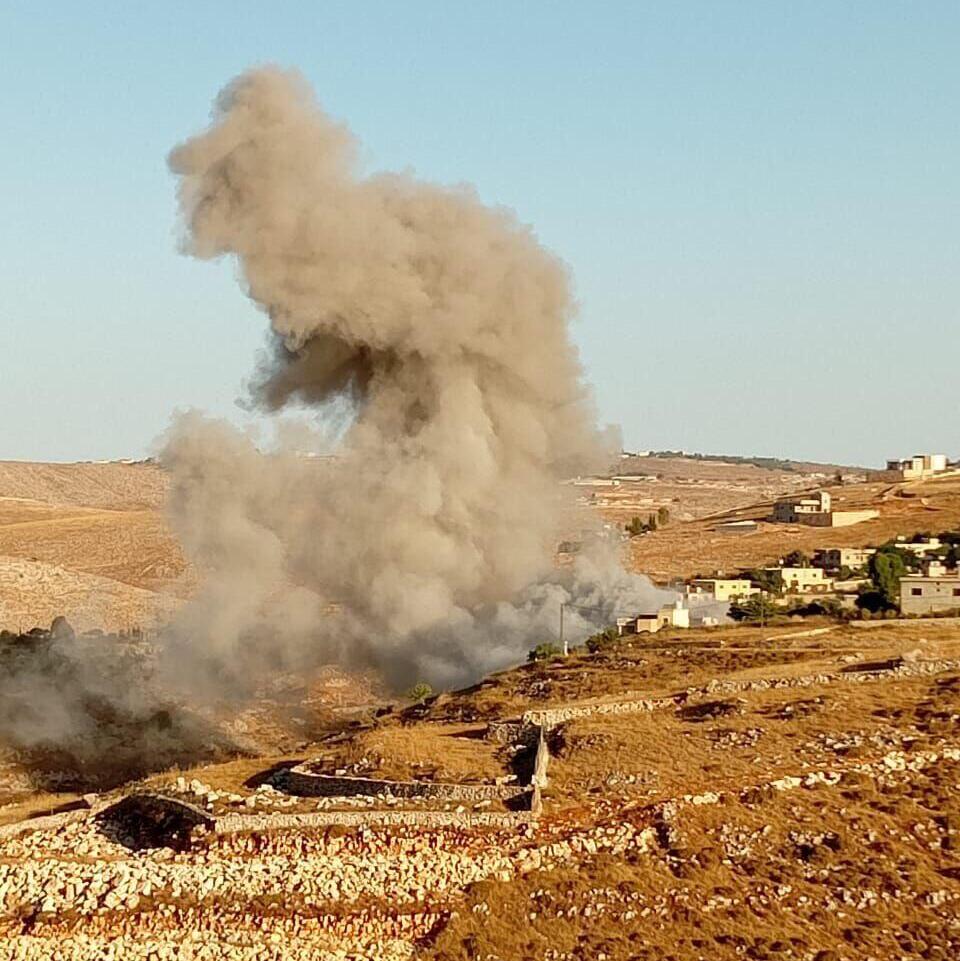Getting your Trinity Audio player ready...
Hezbollah's escalating aggression is pushing the region toward a broader conflict, IDF Spokesperson Rear Admiral Daniel Hagari warned on Sunday.
"Hezbollah’s increasing aggression is bringing us to the brink of what could be a wider escalation - one that could have devastating consequences for Lebanon and the entire region," Hagari said in a statement to foreign media, adding that since October 7, the Lebanese terrorist group "has fired over 5,000 rockets; anti-tank missiles and explosive UAVs from Lebanon at Israeli families, homes and communities."
IDF Spokesperson Rear Admiral Daniel Hagari in message to Hezbollah
(Video: IDF Spokesperson's Unit)
"Hezbollah is jeopardizing the future of Lebanon - so that it can be a shield for Hamas. A shield for the Hamas terrorists who murdered the elderly, raped women, burned children and kidnapped Jews, Muslims, and Christians - during their massacre on October 7. When we say that we will not let October 7 happen again on any one of our borders - we mean it."
He emphasized Israel's commitment to protecting its citizens, saying, "Israel has a duty to defend the people of Israel. We will fulfill that duty — at all costs."
A rare and quiet day unfolded along Israel's northern border, a region that has been the epicenter of conflict for months. The last alert sounded at 3:21 a.m. in the town of Hila with no further alarms issued since. Hezbollah has not claimed responsibility for any incidents. Earlier, at 12:27 a.m., alarms in Upper Galilee settlements were deemed false. The relative calm may be attributed to the Eid al-Adha holiday.
IDF airstrikes in southern Lebanon
(Video: IDF Spokesperson's Unit)
Despite the lull, Israel continued its strikes throughout the day, and Hezbollah's inactivity does not indicate a shift in its strategy. Hezbollah has vowed to persist in its fight as long as Israel continues its operations in Gaza.
White House special envoy to the Middle East Amos Hochstein is expected to arrive in Israel on Monday, followed by a visit to Beirut to meet with Lebanese officials, including Parliament Speaker Nabih Berri, Prime Minister Najib Mikati and Foreign Minister Abdallah Bou Habib.
Hagari's remarks come as the government's funding for hotels and apartments housing over 61,000 displaced residents of northern Israel is set to expire, with their return home scheduled for July 7.
During Sunday's Cabinet meeting, Tourism Minister Haim Katz protested the absence of a decision to extend the evacuation period for all northern and southern communities, demanding certainty for both the displaced and hotels. The Prime Minister's Office promised a resolution within a week.
Meanwhile, Ynet has learned that, as in previous instances, the government is unlikely to offer long-term stability and certainty for residents. The stay for tens of thousands displaced from 41 northern communities is expected to be extended by only a few weeks to two months, despite no clear forecast for restoring security to the north.
Some government officials still hope Hezbollah will relocate its forces beyond the Litani River and that the threat of its elite Radwan force infiltrating the border and anti-tank missile attacks will be resolved diplomatically.






